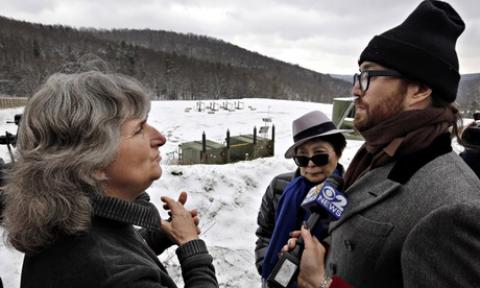 President
Obama’s Kansas speech is a remarkable document. In calling for more
government controls, more taxation, more collectivism, he has two
paragraphs that give the show away. Take a look at them.
President
Obama’s Kansas speech is a remarkable document. In calling for more
government controls, more taxation, more collectivism, he has two
paragraphs that give the show away. Take a look at them.
there
is a certain crowd in Washington who, for the last few decades, have
said, let’s respond to this economic challenge with the same old tune.
“The market will take care of everything,” they tell us. If we just cut
more regulations and cut more taxes–especially for the wealthy–our
economy will grow stronger. Sure, they say, there will be winners and
losers. But if the winners do really well, then jobs and prosperity will
eventually trickle down to everybody else. And, they argue, even if
prosperity doesn’t trickle down, well, that’s the price of liberty.
Now, it’s a simple theory. And we have to admit, it’s one that speaks
to our rugged individualism and our healthy skepticism of too much
government. That’s in America’s DNA. And that theory fits well on a
bumper sticker. (Laughter.) But here’s the problem: It doesn’t work. It
has never worked. (Applause.) It didn’t work when it was tried in the
decade before the Great Depression. It’s not what led to the incredible
postwar booms of the ’50s and ’60s. And it didn’t work when we tried it
during the last decade. (Applause.) I mean, understand, it’s not as if
we haven’t tried this theory.
Though not in Washington, I’m in that “certain crowd” that has been
saying for decades that the market will take care of everything. It’s
not really a crowd, it’s a tiny group of radicals–radicals for
capitalism, in Ayn Rand’s well-turned phrase.
The only thing that the market doesn’t take care of is anti-market
acts: acts that initiate physical force. That’s why we need government:
to wield retaliatory force to defend individual rights.
Radicals for capitalism would, as the Declaration of Independence
says, use government only “to secure these rights”–the rights to life,
liberty, property, and the pursuit of happiness. (Yes, I added
“property” in there–property rights are inseparable from the other
three.)
That’s the political philosophy on which Obama is trying to hang the
blame for the recent financial crisis and every other social ill. But
ask yourself, are we few radical capitalists in charge? Have radical
capitalists been in charge at any time in the last, oh, say 100 years?
I pick 100 years deliberately, because it was exactly 100 years ago
that a gigantic anti-capitalist measure was put into effect: the Federal
Reserve System. For 100 years, government, not the free market, has
controlled money and banking. How’s that worked out? How’s the value of
the dollar held up since 1913? Is it worth one-fiftieth of its value
then or only one-one-hundredth? You be the judge. How did the dollar
hold up over the 100 years before this government take-over of money and
banking? It actually gained slightly in value.
Laissez-faire hasn’t existed since the Sherman Antitrust Act of 1890.
That was the first of a plethora of government crimes against the free
market.
Radical capitalists are just beginning to have a slight effect on the
Right wing. The overwhelming majority on the Right are eclectic. Which
is a nice way of saying inconsistent. MORE








